Q7.How might we make and maintain relationships?
In a world where there's no internet, old people make up the majority of leaders and we value humour.
By Natalie Harney
I struggle with this question in the world we live in currently.
Prioritising humour in relationships sound like a terrific starting place. A shared sense of humour really is a crux in everything, because it not only means you can probably talk to that person for days if not years on end, but because it indicates shared values. Often to find the same things funny you need to have some shared experiences, some shared core beliefs and some shared sense of where the boundaries lie.
If we’re going to focus on humour, then I think it also means we end up focusing less on more superficial things. We will be less focused on how friends and partners look, what they do, or where they come from, although those may now be secondary markers of compatibility. If you share a sense of humour, perhaps it’s because you grew up in a similar way or you are all incredibly tall.
But finding out who you share a sense of humour with is tricky. I think it may be particularly hard to find if there’s no internet, especially if you’re something of a local oddball. As someone who has a sense of humour that takes a while to come out, to feel comfortable, I’d worry that valuing humour above all else would mean we’d value the loudest voices and only the quickest most obvious wit. So, I think in this alternative space we would need a way to come together and find shared humour.
Given old people generally make up the majority of leaders now I don’t know what impact that would have on this mechanism. Although I imagine that a lack of representation for young people would lead them to having a darker sense of humour that would perhaps be brought out. I think that would have the potential to be very powerful or very disenfranchising depending on where it led. It would either buoy young people and bring them together to see the shared truth in their situation (as the best jokes do) so that perhaps they could influence, work with, or eventually be elected alongside their older leaders. Or it may lead to a sense that all there is to do is to laugh about it, that leadership isn’t a space for young people, that they’re roles to be mocked and laughed at and led only by the older generation.
But back to the question, how would we find new relationships and maintain them without the internet while valuing humour.
In order to find new people we would have to go our more. I’m imagining rather than clubs and bars comedy sets and open mics being the place to be. We’d have to gather around and laugh, and then see who laughed with us. Rather than rowed seating, you would have small clusters, like the old-timey comedy clubs, where people could gather. I can imagine bigger followings for comedic shows, radio broadcasts, and films with special gatherings and screenings so like-humoured people can meet. That all feels incredibly physically limited. Perhaps those gatherings could be held over the phone or through the radio. If we’re only focused on humour, perhaps it matters less what someone looks like, so voice only interactions would work well.
Perhaps that would work with things like books as well. If you take a book or a film from a library and enjoy it, along with a librarian recommending other titles you might like they could recommend reading groups that enjoy similar kinds of humour or even people.
I think if we're focusing on humour to build our relationships we'd also had courses and workshops devoted to developing our humour. If people go to the gym now to feel like they're attractive to others, people in this alterantive space might go to comedy gyms to work on making themselves more attractive in this new world. They would do improv and learn about the kinds of humour. Perhaps we'd each end up with our own "tight ten" of a stand-up routine.
In order for any of that to work I think we’d have to build a culture where we’re all prepared to be a little bit more vulnerable. You have to show a bit of yourself in order to have those big belly laugh moments.
To maintain those relationships we’d need to go out more too. We would need to meet and to laugh face to face, or we would need to call or to post things to each other. If there’s no internet, perhaps we’ve found newer ways to have instant communication. What if we could project holograms of ourselves across oceans or borders to our friends, that would really open up the possibility for more physical humour. Gifs and memes have become a great source of humour on the internet, so I wonder if as we sent things to each other whether we would send more images. I love the idea of collaging your own memes in a very lo-fi way. But I also like the idea that we could invite friends to virtually watch and read and listen to things with us and alter that content as we go. You would share the experience and as you found humour in different moments you could make them your own as something to keep. That feels like something the internet would enable now, but perhaps it could be replaced by physical shared viewing or some new television capability.
Ultimately, I think we’d maintain relationships by laughing together just like we do now.
More alternative spaces
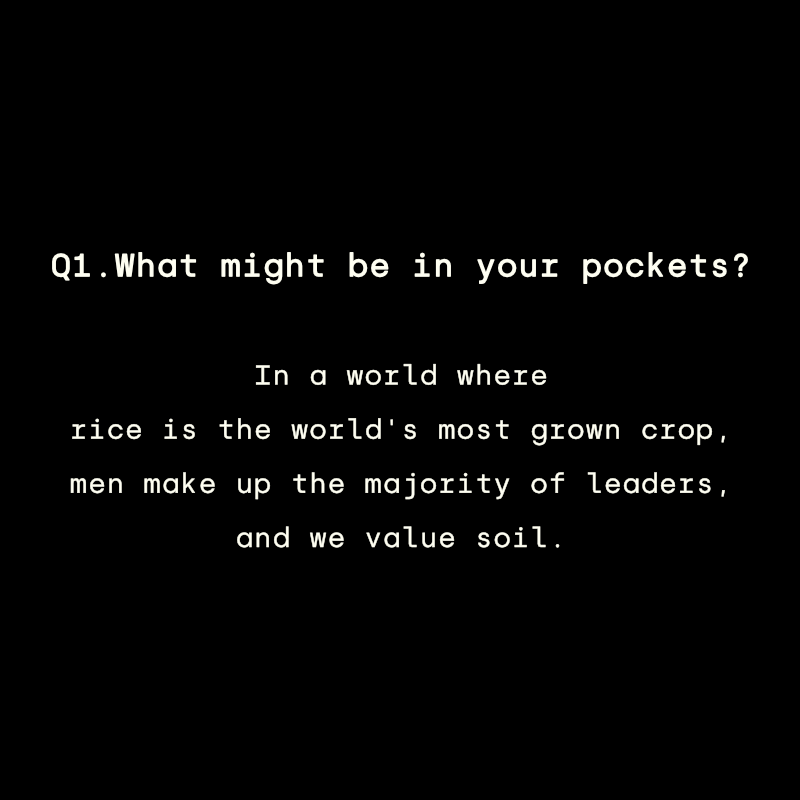
Question 1 - TuckerProject type
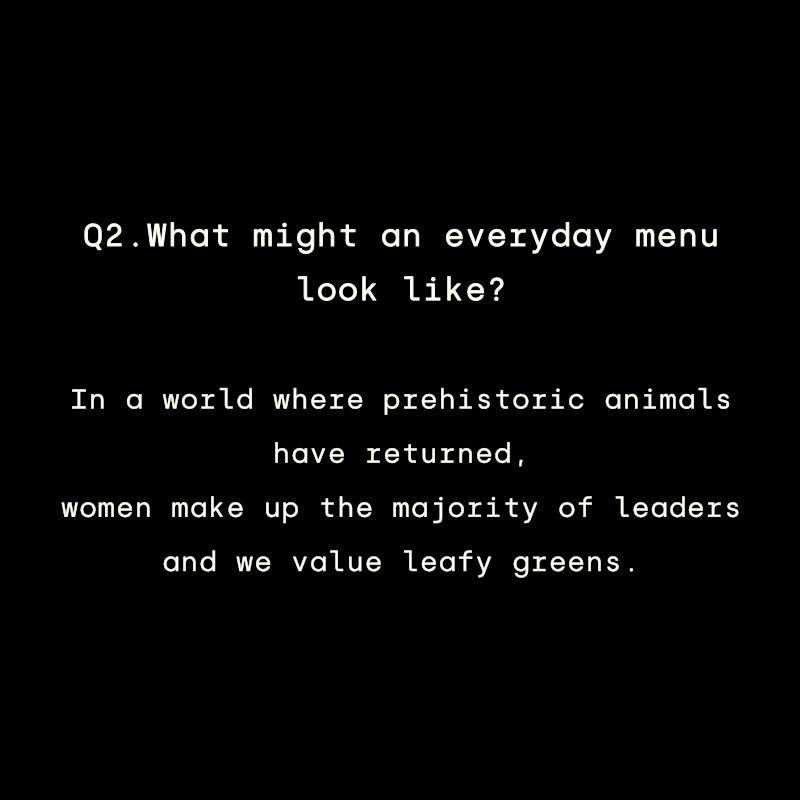
Question 2 - TuckerProject type
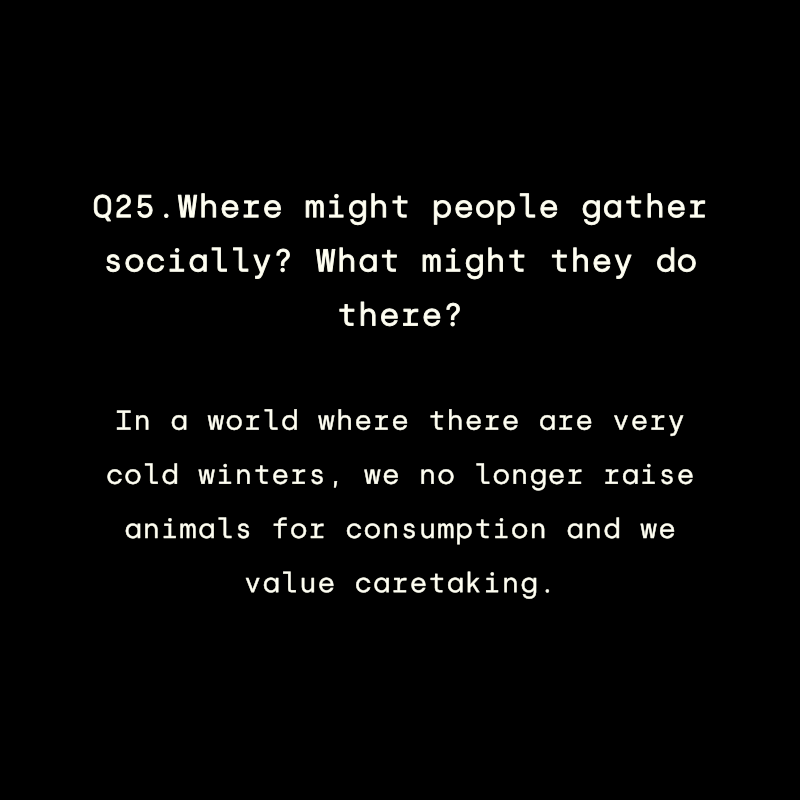
Question 25 - AnonProject type
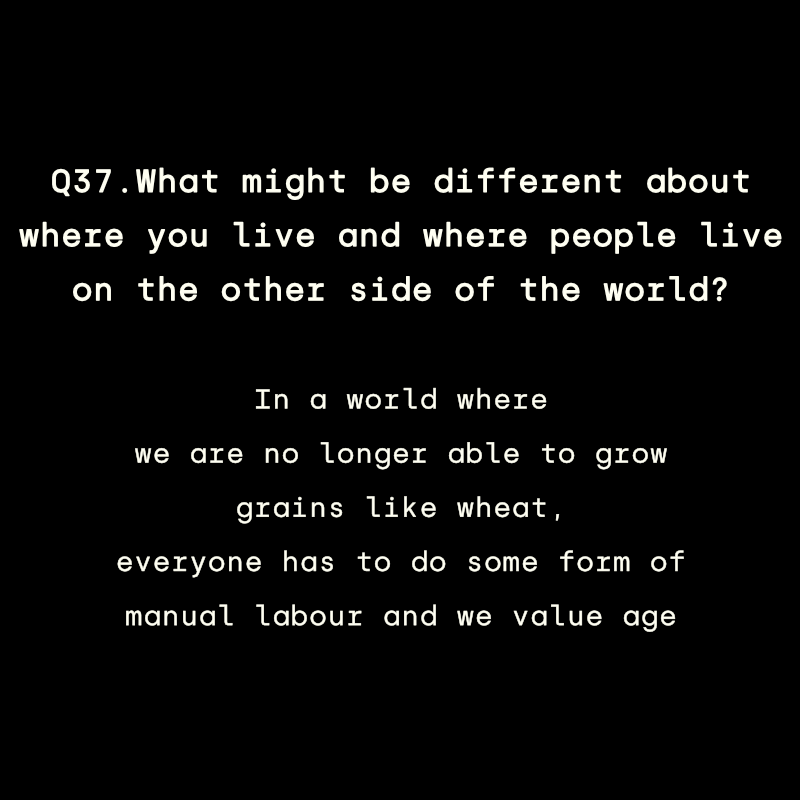
Question 37 - AnonProject type
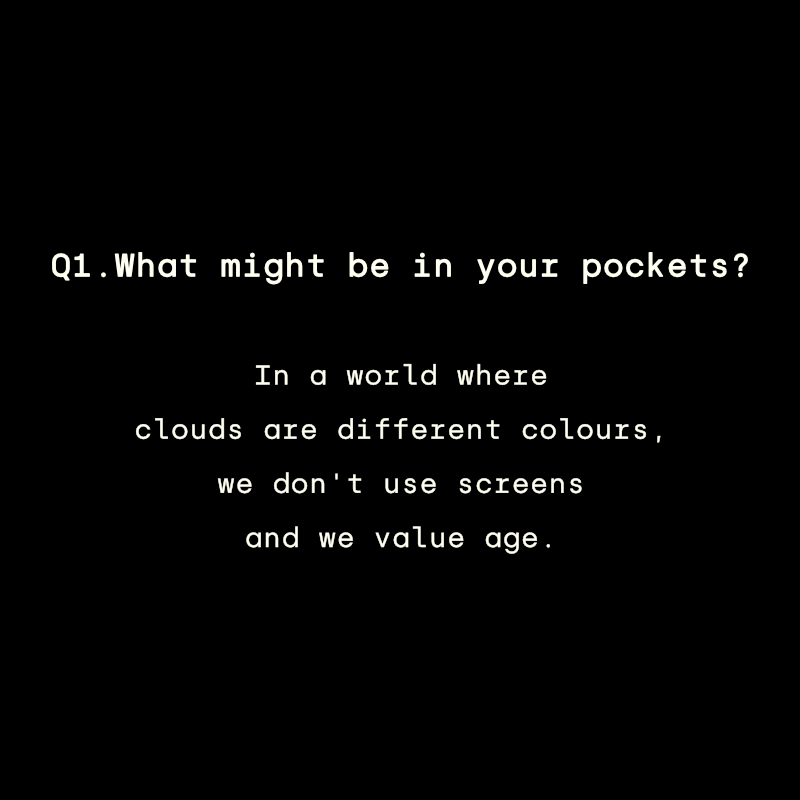
Question 1 - NatalieProject type
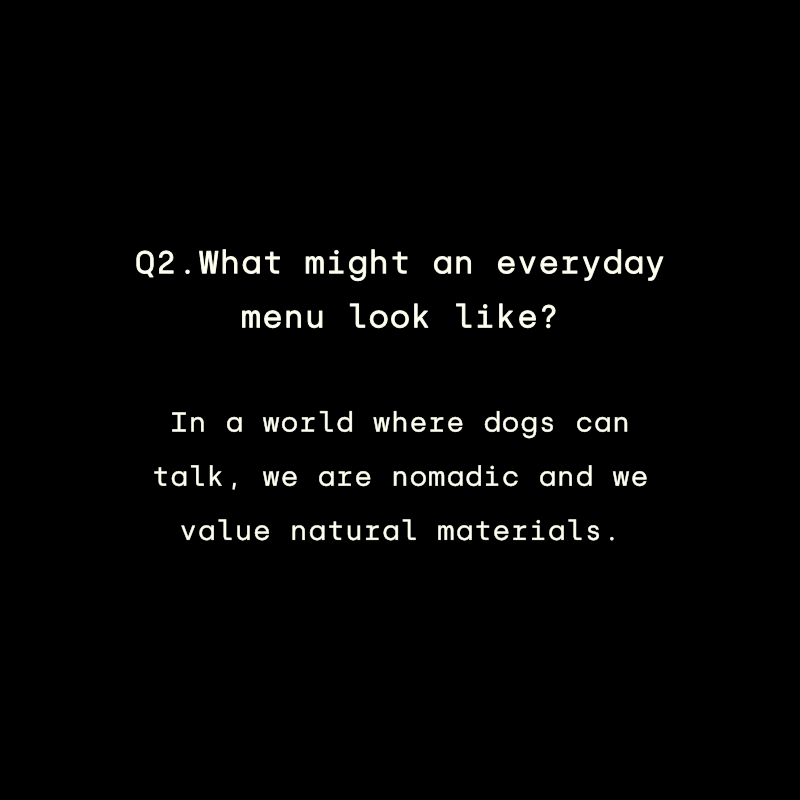
Question 2 - NatalieProject type
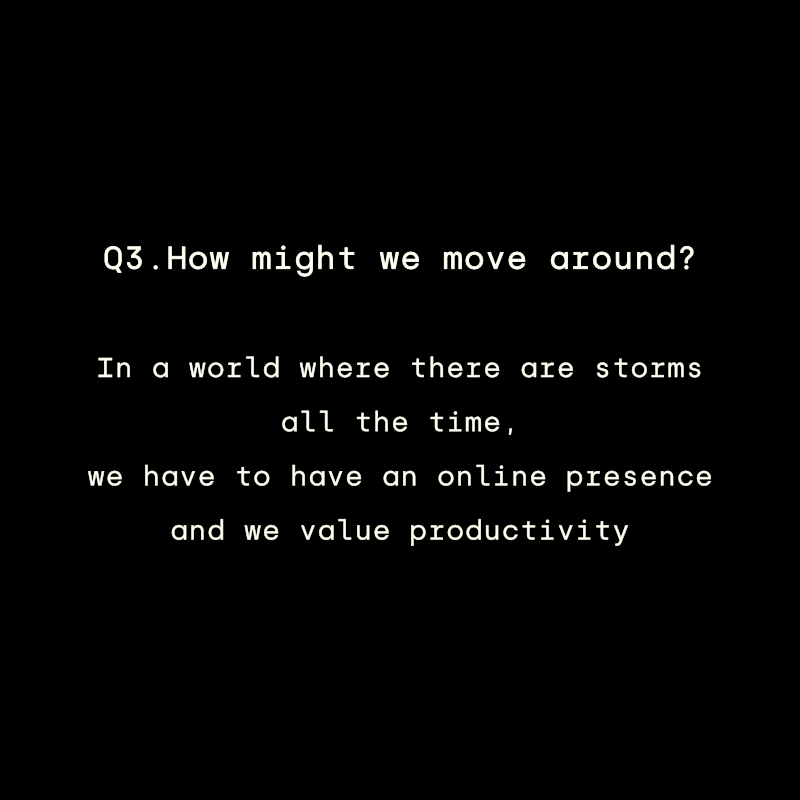
Question 3 - NatalieProject type
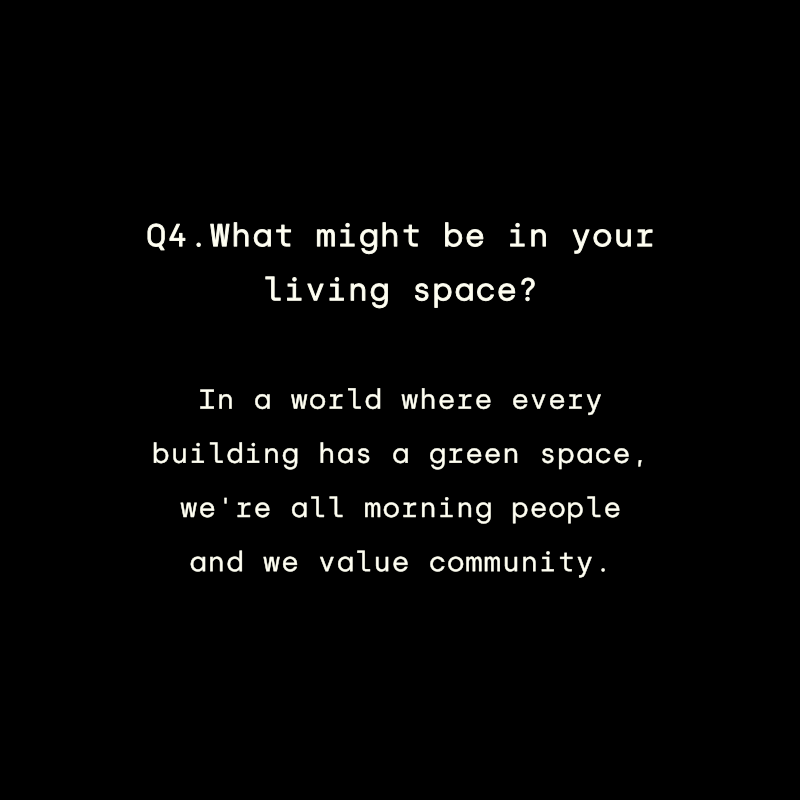
Question 4 - NatalieProject type
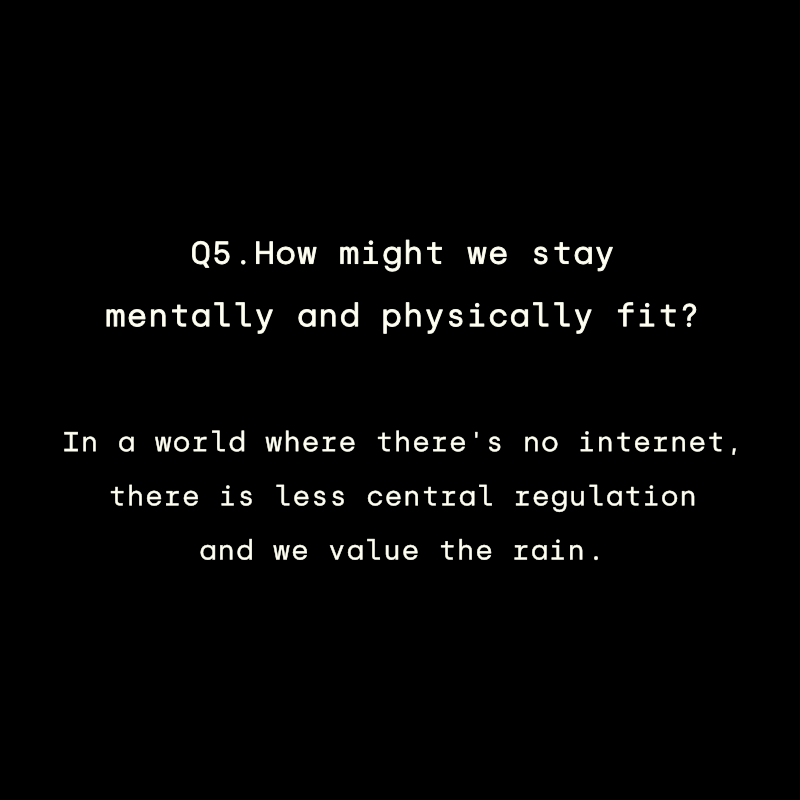
Question 5 - NatalieProject type
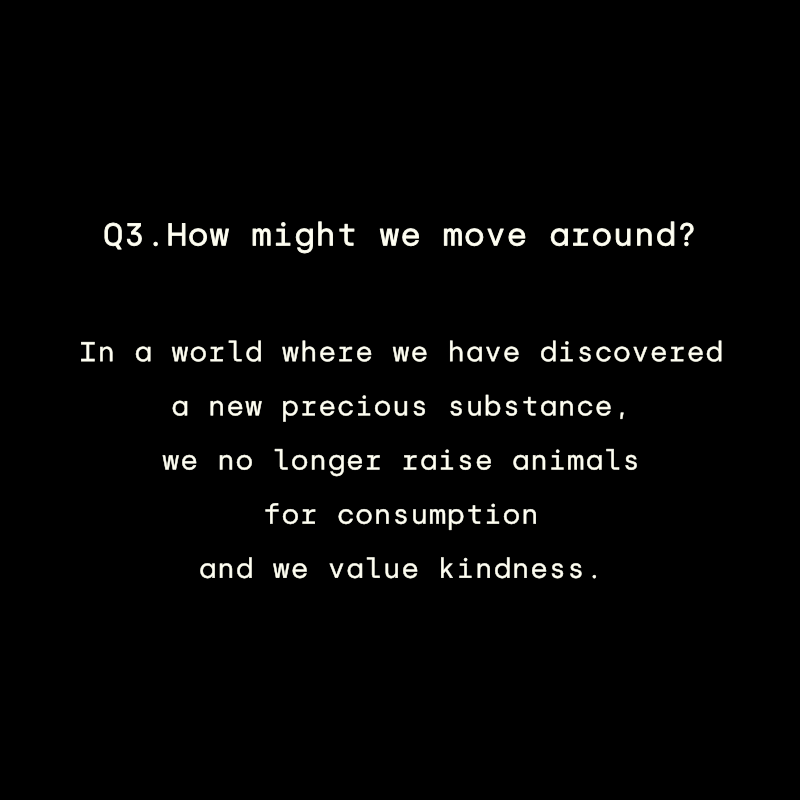
Question 3 - TuckerProject type
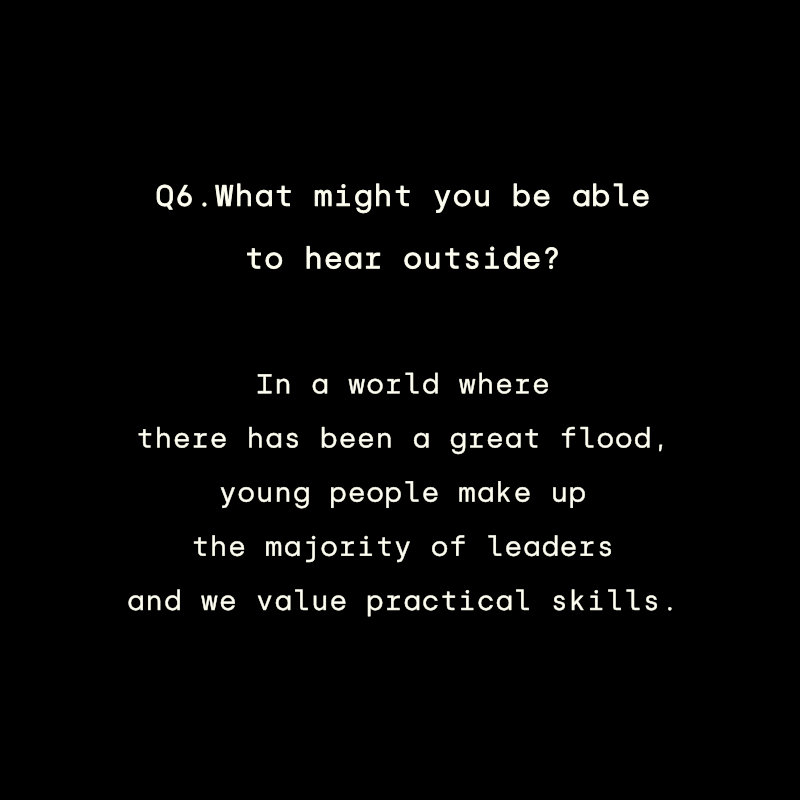
Question 6 - NatalieProject type
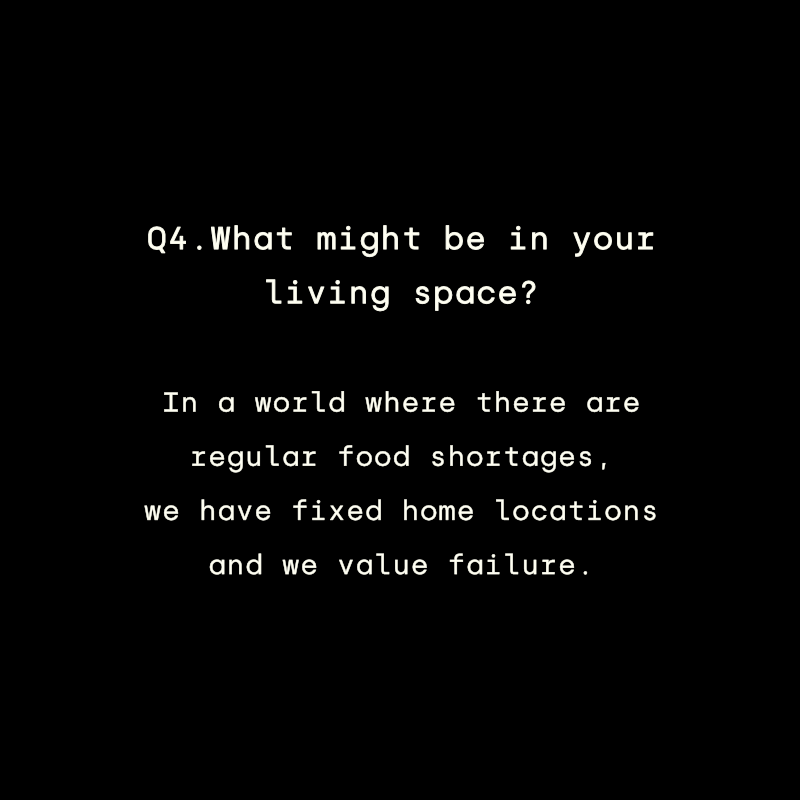
Question 4 - TuckerProject type
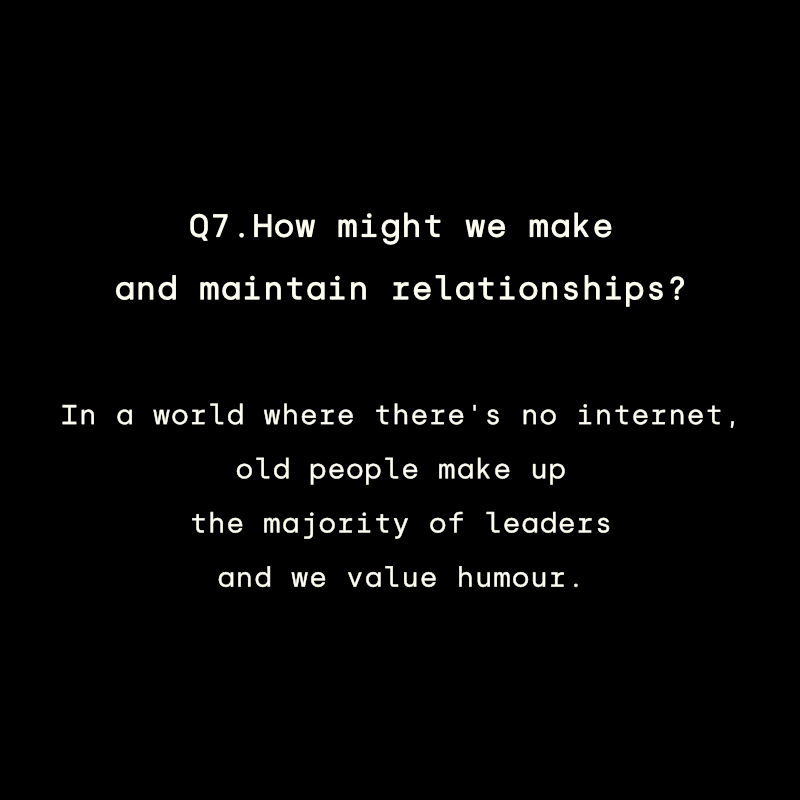
Question 7 - NatalieProject type
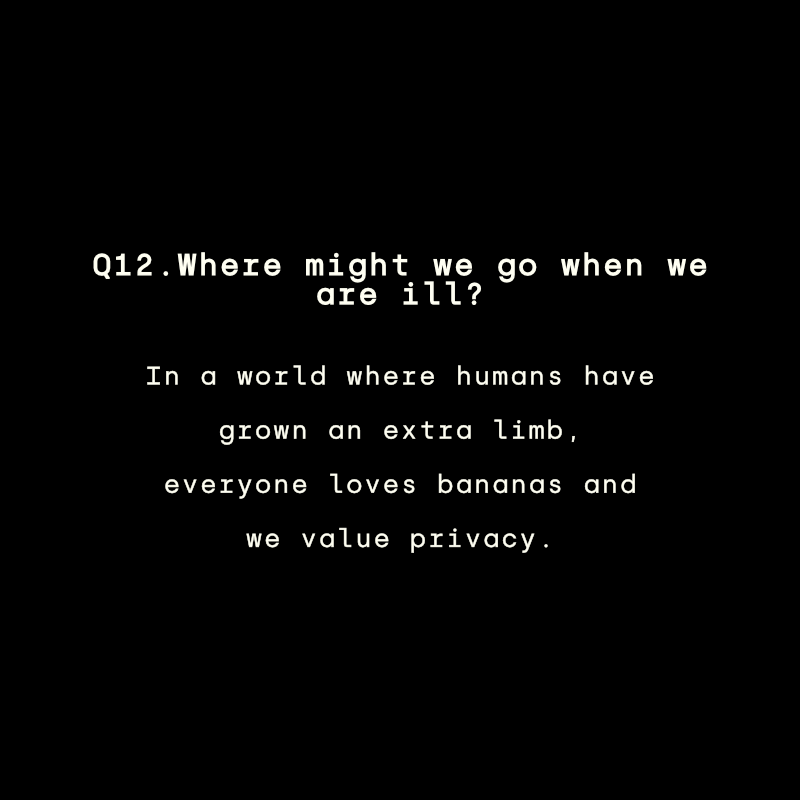
Question 12 - TuckerProject type
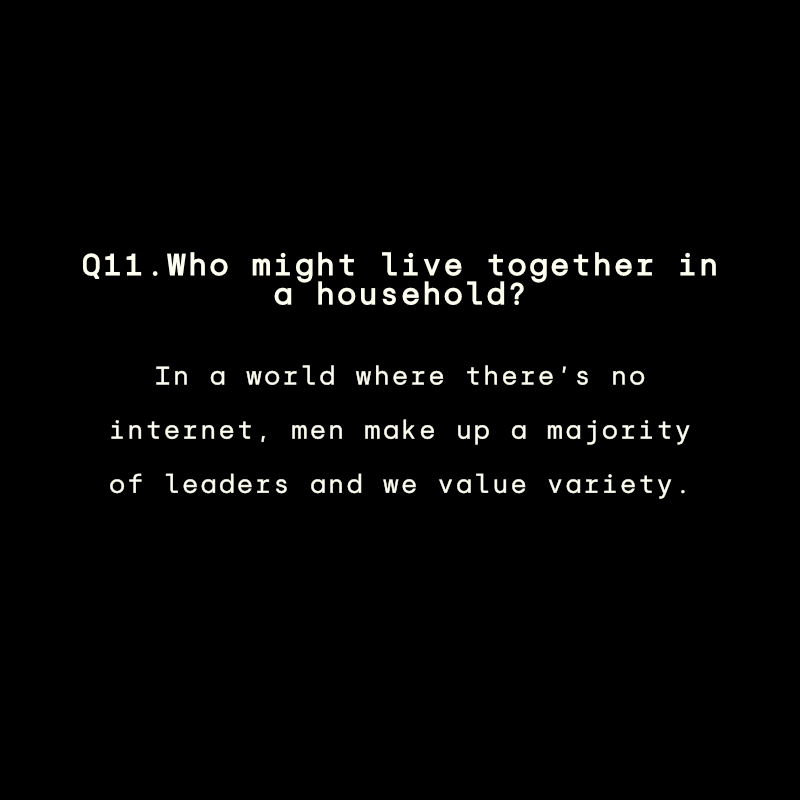
Question 11 - TuckerProject type
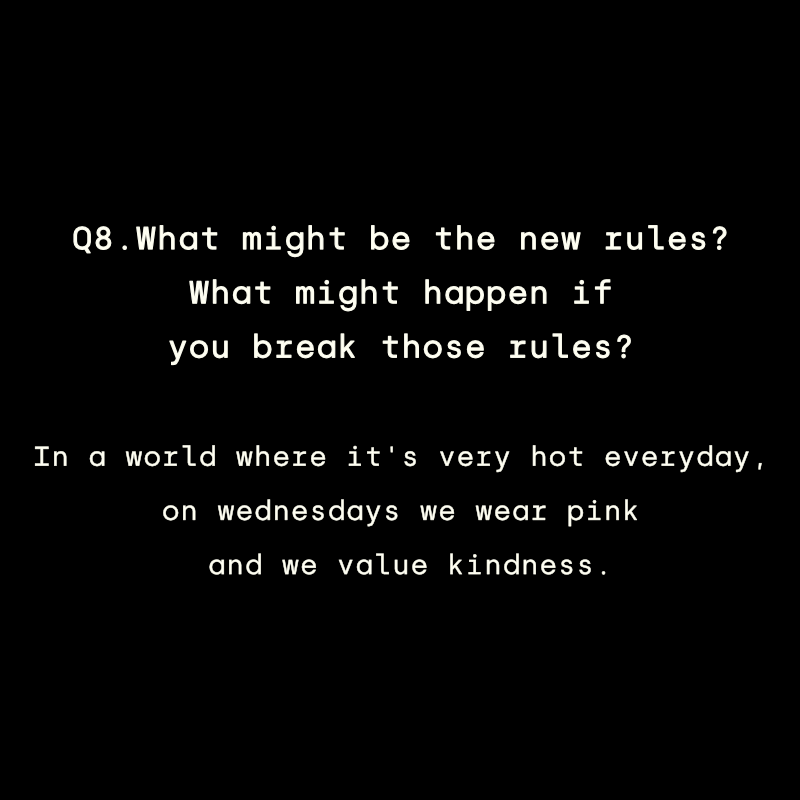
Question 8 - NatalieProject type
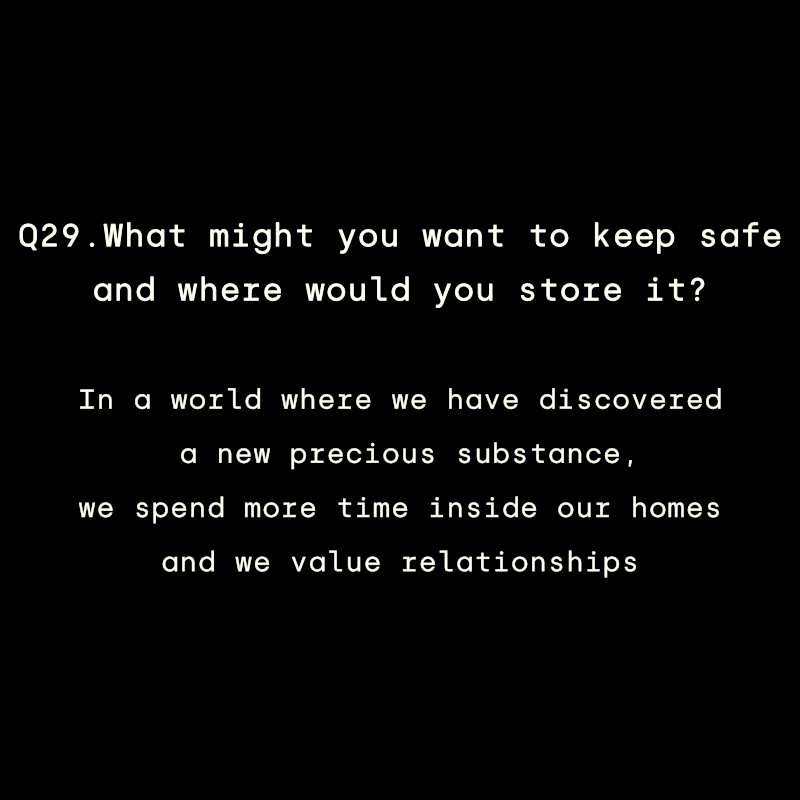
Question 29 - AnonProject type
Imagining Future Spaces is a project by Natalie Harney designed to support and inspire conversations about what alternative worlds might look and feel like.
Site Links
©Natalie Harney 2020, made with Semplice